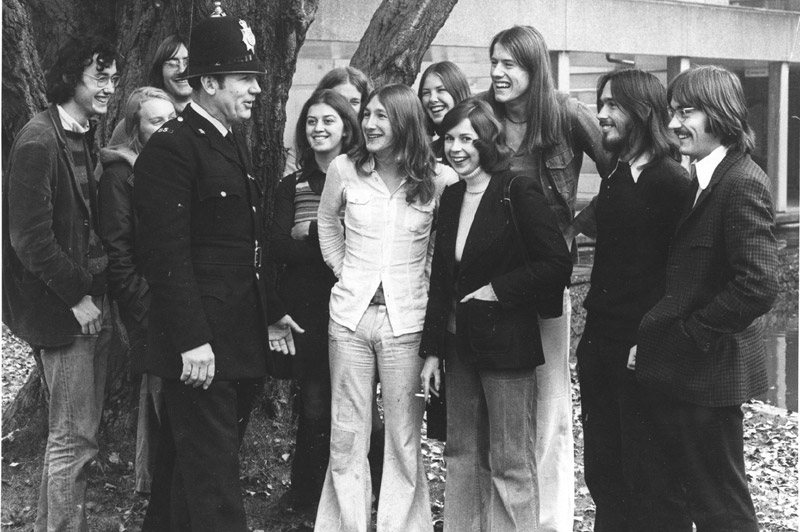University Culture Since the 1970s: How Has it Changed?

When comparing contemporary student life to student life in the 1970s, it becomes clear is that university life in 2016 is under far closer scrutiny than in previous generations, perhaps down to its huge cost. To get to the bottom of this, I spoke to various people who attended university between 1975 and 1996 in order to find out what they think about our university lifestyle.

1.) How do you think society’s attitude towards university has changed since you went?
Janet Cochrane studied Modern Languages at Cambridgeshire College of Arts & Technology (now Anglia Ruskin University) between 1975-79.
“It’s assumed now that anyone with A-levels will go on to Higher Education, but that wasn’t the case 40 years ago. It was only people with the best A-levels who went, while others either didn’t go at all or went to polytechnics. It was also less common for girls to go to university than boys, and it was still assumed that women had less need of a career than men.
There was also a class issue – it was much less common for people from lower socio-economic groups to go. I had a friend who lived on a council estate in Sheffield who decided she wanted to go to Cambridge. Her teachers told her she would never get in, but she was incredibly determined (and clever) and did so. She became a senior pathologist in the NHS. Someone from a more middle-class background wouldn’t have had to fight ‘the system’ so hard."

2.) Do you think the drinking culture has changed since you were at university?
Bernie Cullen attended Queen Mary College University of London and Sheffield Hallam University (Sheffield Polytechnic) between 1976-1987. She is currently studying for an MA in Creative Writing at Manchester Metropolitan University.
“I did a lot of drinking in the student bar and our social life was much more confined to the university in the 1980s: going into local pubs was a rare and treasured thing. Students in Manchester tend now to dominate a whole area and they seem to be catered for very directly by the local traders, it seems almost predatory."

3.) Do you think students work as hard/harder than they did when you were at university?
Alastair Dent studied Applied Physics and Computer Science at the University of Western Australia and the West Australian Institute of Technology between 1986-88.
“I think there is much more financial pressure on students to balance their studies with paid work. I had to miss a lab session because I had a part time job and I was called in for an extra shift – when I told my lecturer, he was outraged, ‘You should be studying, not working!’. Now it is quite normal to need a part time job to manage to get by while at uni."

4.) What do you think about the cost of university nowadays? Do you think it’s worth it?
Melissa King studied Elementary Education at the University of North Carolina at Charlotte with a Masters in Special Education between 1988-1996.
“It is unbelievable what some universities cost today! The worth of a degree can only be judged against the career it may lead to. If the degree leads to a career that is financially and emotionally fulfilling, then it is worth it. If the cost of the degree will never be regained with the career it brings, then no."

5. You have a child attending university now in 2016, do you think university is worth the hefty price tag for students today?
Alastair:
“No. The debt level compared to the jobs available for many degrees do not make it worth it. It is very sad for the people who really want to study and learn: we are killing off a generation of academic study. Given the high fees, I find the number of contact hours appallingly low. The focus seems to be on facilities, buildings and gloss, rather than teaching."
Janet:
“For some it’s obviously worth it, especially when they’re learning a complex skill or just learning how to think, write, or do research. For others I think it would be better to go straight into a job from school (if they can find one!) and work their way up, perhaps studying at the same time. The problem is that many jobs seem to require a degree now, even if it isn’t isn’t a particularly academic one. Far too many people take out a student loan because they know they’ll end up in low-paid jobs so won’t have to pay it back."



